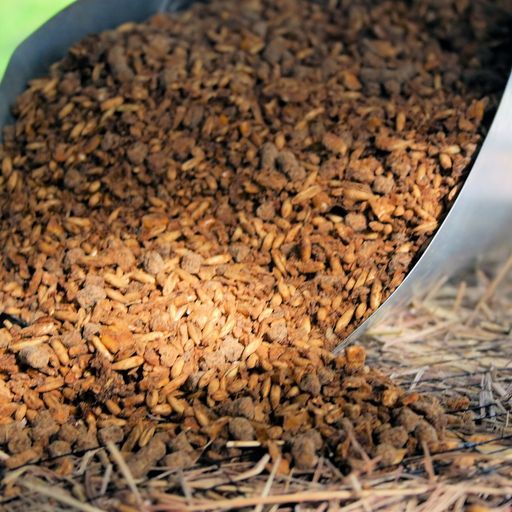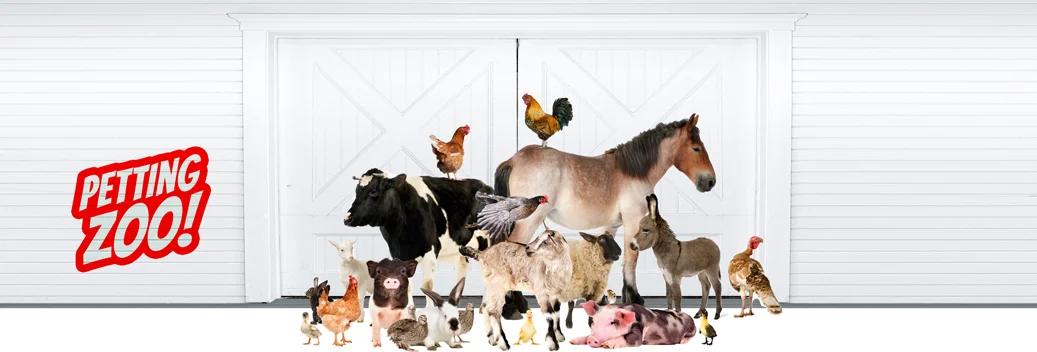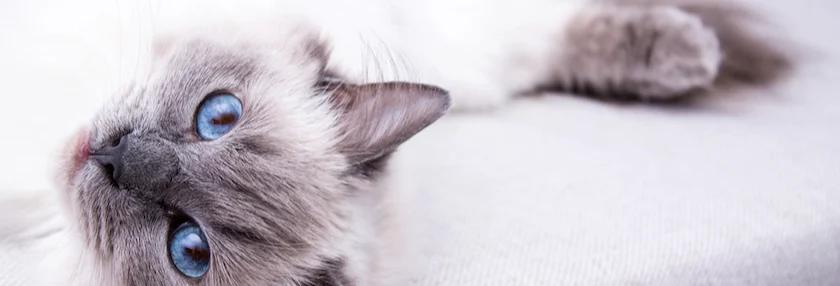Superior Swine
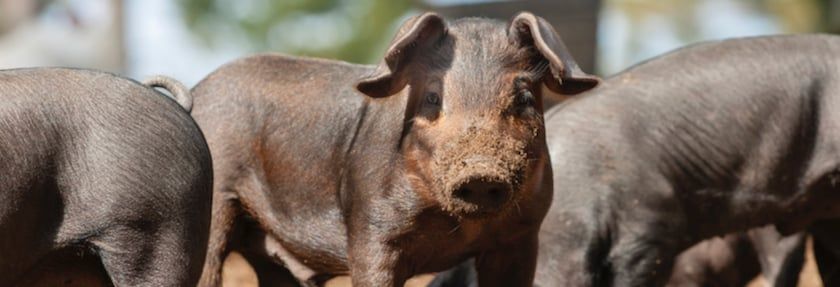

A look at Large Black pigs
As millions of movie-goers know, in the 1995 film Babe, the sheepdog Fly says “Who are you?” to the young piglet Babe, who replies, “I’m a Large White.” That movie may have introduced us to the Large White (also called the Yorkshire) pig breed, but today we’re going to introduce you to the Large Black.

Not familiar with the breed? That’s not surprising, considering its rarity.
The Livestock Conservancy currently has Large Blacks listed as ‘critical’ on its Conservation Priority List.
But here are 8 facts about Large Blacks to introduce you to this fascinating breed.
1. They’re a British breed
Large Blacks were developed in England around the 1850s, and became quite widespread around 1900. The breed was developed using pigs—all black—from two different regions of England, some from the southwest, some from the east. In turn, some of these British pigs may have had genetic influences from Chinese pigs brought to England in the 1700s.
2. They’re all ears
Large, floppy ears are one of the most obvious physical traits of the Large Blacks. While the ears might occasionally get in the way of the eyes and block the pig’s vision (“Ears…well-inclined over the face,” notes the British Pig Association’s Breed Standard), they also provide some protection during rooting.
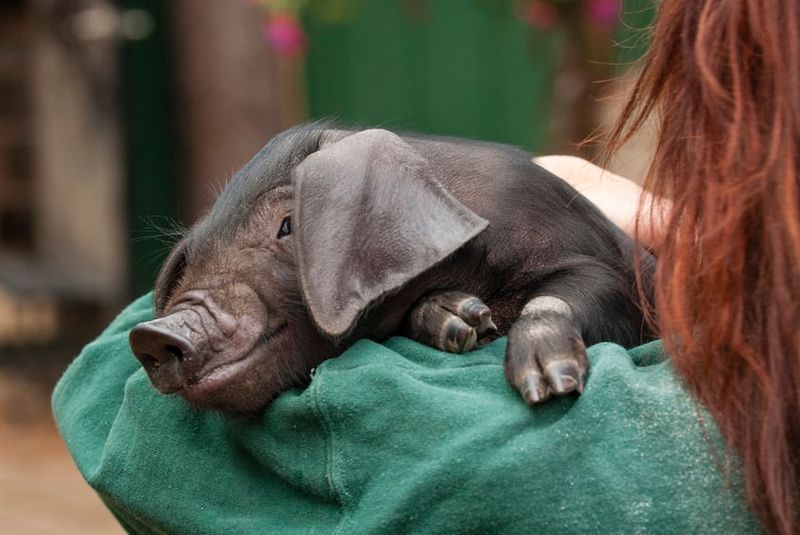
3. “Large” is no joke
There’s a good reason the word “large” is included in the breed’s name. Male Large Black pigs weigh in at an impressive 800 pounds when fully grown, with females only slightly lighter at 700 pounds. In addition, the pig’s general shape is large, with a deep and long body.
4. They’re unique
Of all the British pig breeds—and there are 14 of them—the Large Black is the only one that has 100% black coloring all over. The Berkshire is mostly black, but has those white feet and faces, and the British Saddleback and Hampshire display white belts around the shoulders. But the Large Black is all black. In fact, the wording of the British Pig Association’s Breed Standard explains that, “Any colour other than black,” will “make the pig ineligible for Herdbook Registration.”
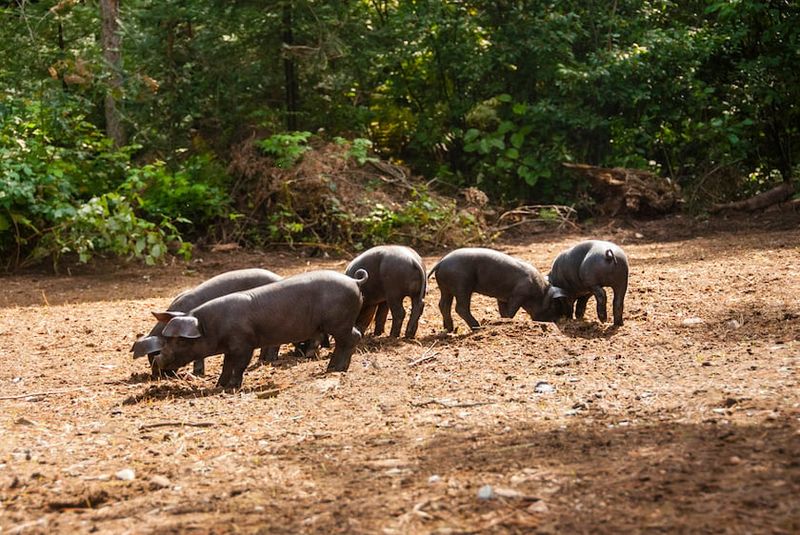
5. They resist sunburn
That black coloring has its advantages. The pigs are noted for their ability to resist sunburn—providing them with an extra bit of hardiness and ability to thrive in varying temperatures.
6. They do well on grass
You’ve probably seen certain meats advertised as “grass-fed beef” or “grass-fed bison.” Don’t forget that pigs enjoy pasture as well, and Large Blacks in particular are suited to this type of farming. They’re able to transform “pasture into pork” in a quite efficient manner (of course some supplemental feedings may be necessary as well). Keep in mind that all pigs can be rough on pastures, but rotational grazing can help.
7. They’re good mothers
In addition to their hardiness, Large Blacks are generally docile pigs, with excellent mothering instincts and high milk capacity.
8. They’re easy to care for
Additionally, Large Blacks are noted for their tendency to thrive in extensive farming—that is, a simple, outdoor, less labor-intensive approach toward agriculture. Their calm natures mean that fencing might not have to be as elaborate as for other pig breeds. If raising pigs in a more natural “homesteading” environment appeals to you, you just might want to explore the Large Black further.
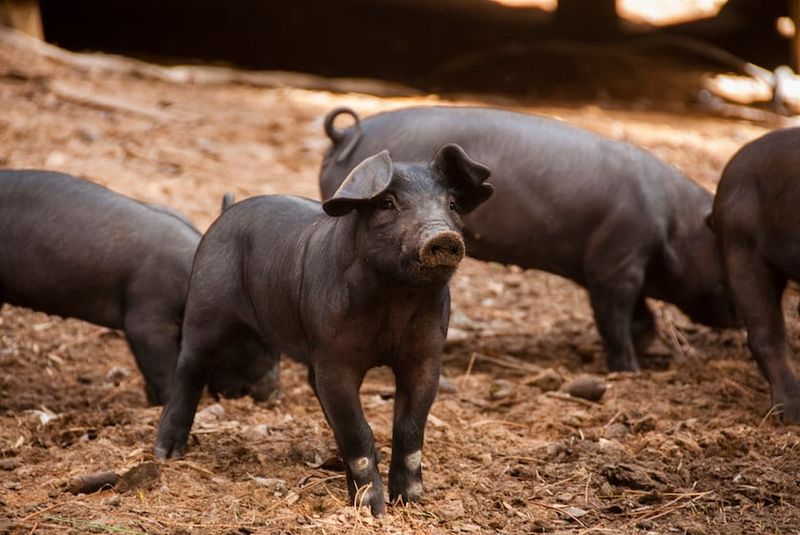
And good news!
According to The Livestock Conservancy, 25 Large Black piglets were born at Purdue University in May 2020, representing the first piglets born from imported frozen semen sent from the United Kingdom.
This represents an exciting opportunity to introduce new genetics into the gene pool of Large Black pigs in America, and ensure genetic diversity in the years to come. The future looks bright for the Large Black pig as additional piglets are expected in the coming months.
(Photos by Daniel Johnson and Paulette Johnson)
Tags:Country Critters

Acreage Life is part of the Catalyst Communications Network publication family.












